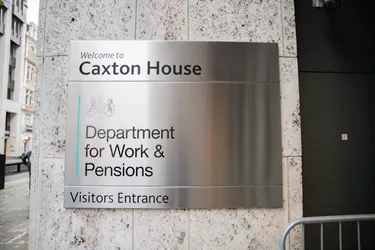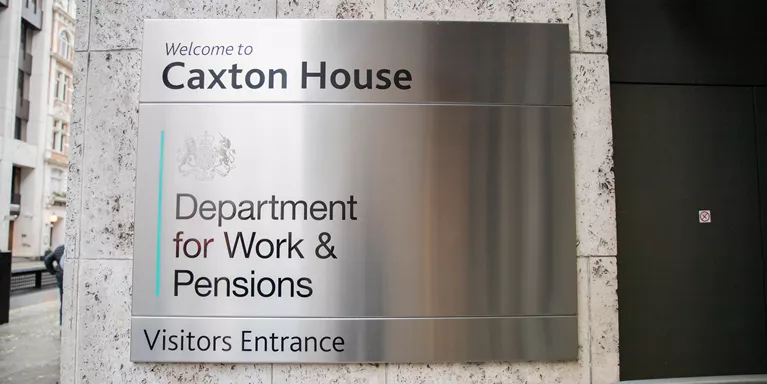Why the Government needs to scrap its plans for Universal Credit
Ayaz Manji is a Policy and Campaigns Officer at Mind. He leads on Mind’s campaigning work on welfare, benefits and back-to-work support.
Next week, the Government is bringing together organisations to talk about their plans for the next stage of Universal Credit. In this blog, Ayaz from our policy and campaigns team sets out what we’ll be telling them.
When you’re unwell and struggling with your mental health it can sometimes feel like everything else happening in your life goes on hold. Messages from friends and family go unanswered, appointments get missed, and bills, letters and notices start to pile-up. Working your way out of that can be difficult at the best of times. But what about when it’s your entire source of income that’s on the line?
That could become the reality for too many people with mental health problems if the Government presses ahead with its plans for Universal Credit. The new benefits system has been rolling out across the UK, but it’s about to reach the next stage. There are still millions of people receiving older benefits, including many who need financial support because their mental health makes it difficult to work. From next year, people on those benefits will start receiving letters telling them they have to make a claim to Universal Credit. It’s not yet set in stone how much time people will have to make a claim but according to the Government’s plans it's likely to be around three months. It’s not hard to imagine situations where people might still be struggling long after their existing benefits have stopped or worse still, be left without money altogether.
We don’t yet know all of the details about the Government’s plan – but we do know that putting in an application for Universal Credit can be very difficult.
So what are Mind doing about it? In short, everything we can. In June, we asked members of the committee looking at these changes to visit Mind in Croydon and hear directly from people with experience of going through the system. We also asked campaigners to email the committee to tell them about their experiences of the benefits system. The message came out loud and clear that if this change goes ahead, then it’s the Government, not people who are unwell, who have to take responsibility for the move to Universal Credit.
"The message came out loud and clear that if this change goes ahead, then it’s the Government, not people who are unwell, who have to take responsibility for the move to Universal Credit."
Since then, we’ve been taking every opportunity to raise these issues with Government Ministers, with MPs, and in the media. We’ve been saying that no-one else should be moved onto Universal Credit until there’s evidence it’s safe for people with mental health problems and until there’s a guarantee that no-one will lose out.
And on Wednesday 17th October, the Government have asked lots of organisations to come together to talk about the next stage of Universal Credit. We’ll be there to represent the real fears and concerns that people with mental health problems have raised with us again and again. Our message will be clear - that a process that involves a ‘hard-stop’ or any risk that someone could suddenly be left without income is not a process that’s fit for purpose.
Over the summer, we heard from a huge number of people with mental health problems who told us they’re really worried about what these plans could mean for them. Jane told us:
“It's not understanding the letters, it's actually opening them. Just the sight of a "brown envelope" sends me in to a huge panic and I can often put off opening a letter in a brown envelope. If I were to use words and phrases such as ‘catastrophic thinking’ and ‘panic attacks’ you may get a fair idea of the way and route that this affects me."
"It's not understanding the letters, it's actually opening them. Just the sight of a "brown envelope" sends me in to a huge panic."
And even for people who have read the letters in time, understanding them and knowing what to do next is going to be just as important. Keith told us:
"I have schizoaffective disorder which includes hallucinations, paranoia and delusions. It means I don't always understand the letters I get about my benefits. The letters are usually long and detailed which require concentration and a certain level of understanding. Anything about my benefits I take to my community psychiatric nurses to go through it with me otherwise I'd miss very important details."
"I have schizoaffective disorder which includes hallucinations, paranoia and delusions. It means I don't always understand the letters I get about my benefits."
There are still many problems people are having with Universal Credit that need to be addressed before it goes further. Universal Credit is mostly online which is already tricky if you’re unwell and don’t have access to a computer. Switching over also means getting used to budgeting from one monthly payment – something that can be difficult if your mental health makes it harder for you to manage money. Kathryn told us:
“I have a routine now where my benefits comes fortnightly and after many years of struggling I've been able to set up so I can stay on top of my finances. Even then, I sometimes lose focus and forget certain things which puts me in a mess. During episodes I suffer from psychoses which are dangerous, especially when I get a large payment into my bank. I can overspend very easily or buy things I didn't need but in my delusional state they are needed. Having it all come in one monthly payment puts the risk of not having enough to feed myself or warm my home much higher.”
"I can overspend very easily or buy things I didn't need but in my delusional state they are needed. Having it all come in one monthly payment puts the risk of not having enough to feed myself or warm my home much higher."
So we’ll be taking the experiences of Jane, Keith and Kathryn with us to the meeting next week. And we’ll be clear that Mind exists to make sure that people with mental health problems can get support and respect. Campaigning is part of how we do that and we’ll always be willing to meet with Government to tell them what’s not working and what needs to change. But meeting with isn’t the same as working together, and we have no intention of helping to deliver a system which risks pushing many people with mental health problems into poverty or makes their health worse.
We have no intention of helping to deliver a system which risks pushing many people with mental health problems into poverty or makes their health worse.

See what we're campaigning on

Our campaigns
We'll fight your corner. We believe everyone with a mental health problem should be able to access excellent care and services. We also believe you should be treated fairly, positively and with respect.
Share your story with others
Blogs and stories can show that people with mental health problems are cared about, understood and listened to. We can use it to challenge the status quo and change attitudes.

















